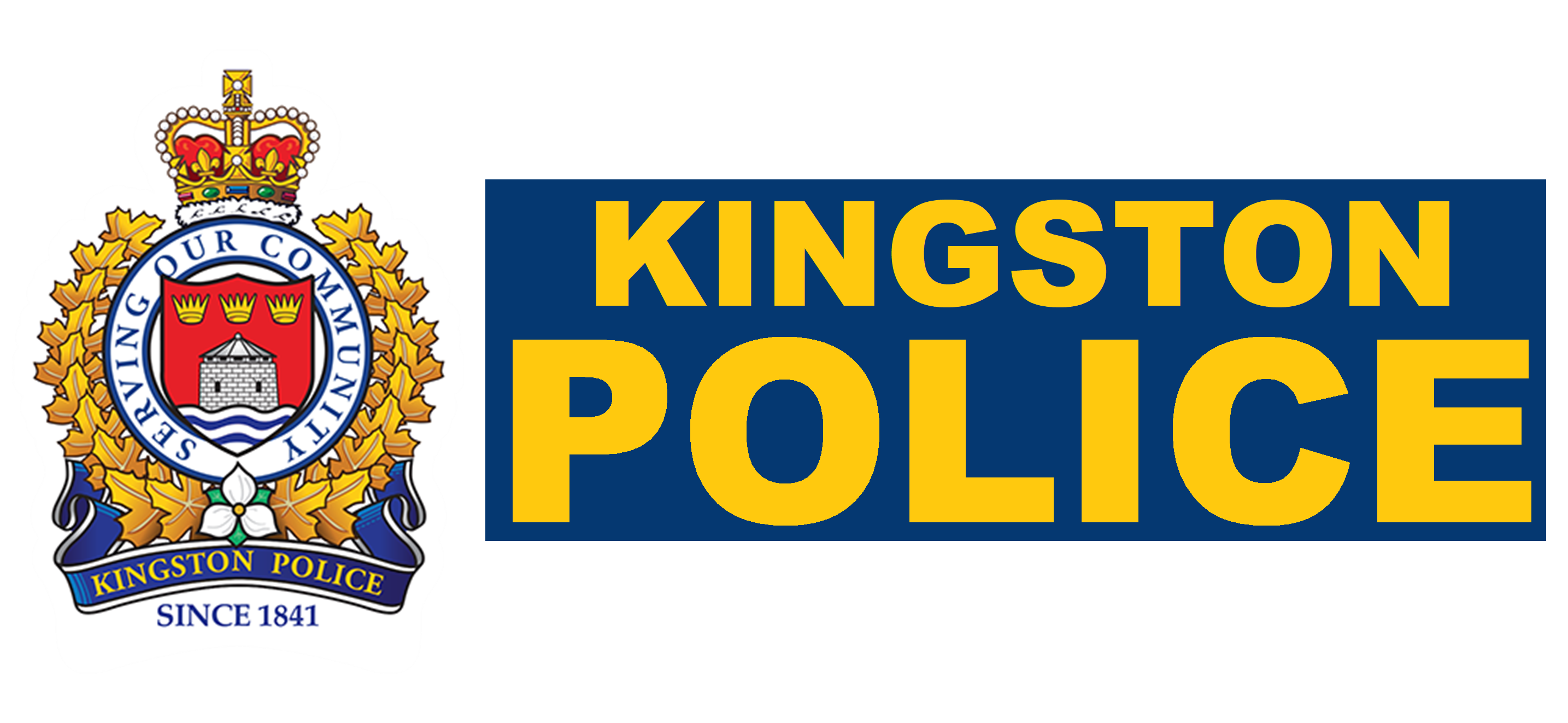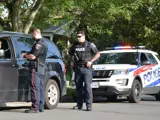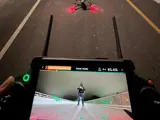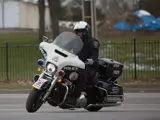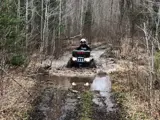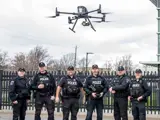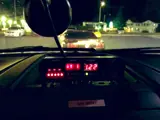The HTA is the backbone of the TSU, and encompasses all of the laws and regulations that govern how to safely operate a vehicle or motor vehicle on a roadway. All Officers learn to apply the HTA in their first year while at the Ontario Police College. TSU Officers are specialists in the HTA and have a distinct aptitude for this legislation. Patrol Officers know they can call on the TSU for advice in HTA-related matters. It is a primary duty of the TSU to proactively police the City of Kingston to ensure motorists, cyclists, and others are following the law.
Traffic Safety Unit
“With cruisers, motorcycles and drones we drive, ride and fly to improve road safety. .”
The Kingston Police Traffic Safety Unit (TSU) has a broad mandate for safety and enforcement on all roads and highways in the Kingston area. However, the TSU also takes responsibility for collision reconstruction, RIDE programs, drone operations, parade escorts, and so much more.
The TSU utilizes the regulations and authorities in the Ontario Highway Traffic Act (HTA) to charge unsafe drivers and remove unsafe vehicles from our roadways.
The TSU is responsible for:
- Collision Reconstruction
- Impaired and Drug recognition programs
- RIDE Program
- Select Traffic Enforcement Program
- Radar training
- Commercial Motor Vehicle Inspections
- Drone operations
- ATV training and enforcement
- Parade permits and escorts
The TSU also operates the Motorcycle Unit and works within the Community Oriented Response and Engagement unit.
TSU is also responsible for sitting on a variety of public safety committees.
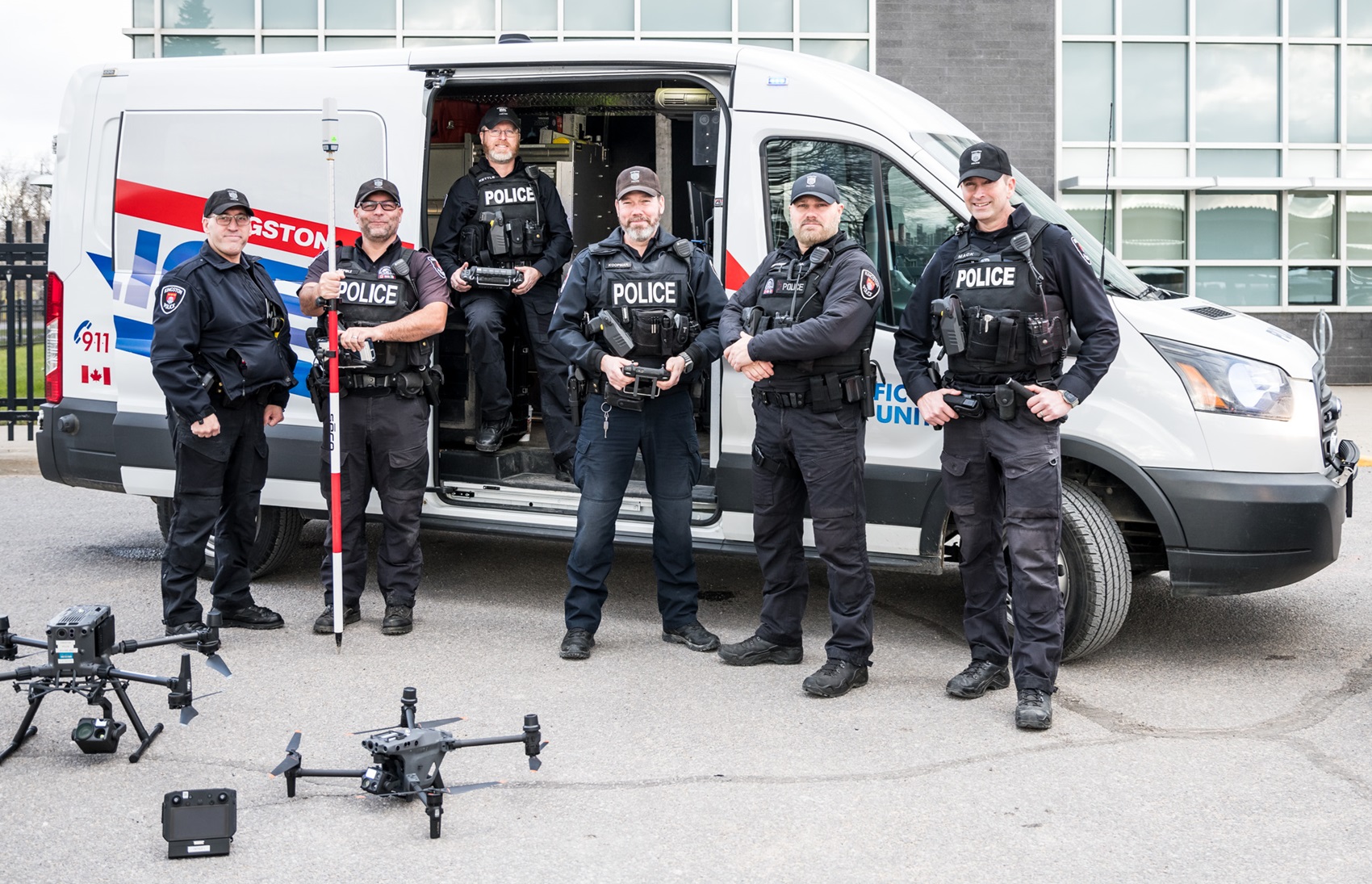
Reduce Impaired Driving Everywhere (RIDE) Programs
RIDE, or Reduce Impaired Driving Everywhere, are spot checks to investigate occurrences of impaired driving in Kingston. RIDE Programs involve several Officers setting up a cordon to speak with all motorists in a given location at a specific time. This proactive strategy has proven exceptionally effective at catching impaired drivers before they become involved in an accident.
Traffic Concerns and Complaints
The TSU responds to, and investigates hundreds of traffic complaints each year. Residents who encounter unsafe drivers or have concern for traffic safety in specific locations, are encouraged to utilize on our online reporting to file a Traffic Complaint.
Selective Traffic Enforcement Programs (STEP)
Selective Traffic Enforcement Programs (STEPs) are periodic, focused enforcement of specific traffic issues. Officers may notice that they are charging many more people than usual with, for example, failing to use their seatbelt. A STEP initiative will then have TSU Officers specifically looking for this offence to correct it. The selection and timing of c STEP initiatives is determined by national/provincial campaigns, and seasonal safety such as back to school, winter driving, etc.
STEP initiatives are equal parts enforcement and an opportunity for public education.
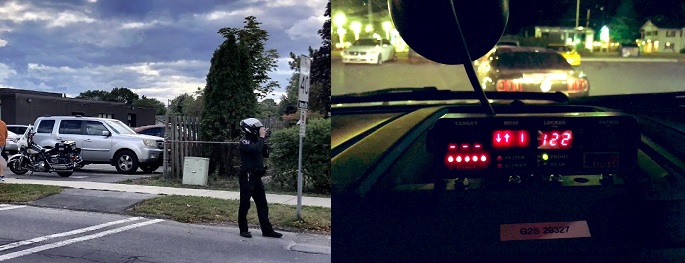
Commercial Motor Vehicle (CMV) Inspections
In collaboration with the Ministry of Transport Ontario (MTO), TSU Officers will inspect commercial transport trucks to ensure that the specific rules and regulations that govern what they can carry, and how, are being followed. They also inspect the trucks themselves to ensure that they are in proper working order. Given the number of transport trucks on Ontario’s highways, CMV Inspections are a critical, but often overlooked, aspect of highway safety.
One of the more enjoyable roles of a TSU Officer is that of parade escort. From community events to the annual Santa Claus Parade, this duty is a nice opportunity to connect with the community in a different way.
The TSU is primarily responsible for the operation of drones in the Kingston Police. In this capacity, TSU Officers support any and all other units as needed. The TSU may be called out to deploy their drones to locate missing people, to assist with investigations, to enhance public safety at large scale events, and to assist with other critical incidents.
Due to the diversity of tasks in the Traffic Safety Unit, sometimes deploying a cruiser is less effective than employing a motorcycle. As such, the TSU has four Harley Davidson motorcycles in its fleet. These specially trained Officers have a greater mobility than a standard cruiser and are deployed whenever the opportunity presents itself.
ATVs and the Off Road Vehicles Act (ORVA)
In addition to flying drones, driving cruisers, and riding motorcycles, TSU Officers use All Terrain Vehicles (ATVs) to patrol the myriad of trails in and around the City of Kingston, ensuring the safe use of these trails by all.
Community Oriented Response and Engagement (CORE)
Organizationally, the TSU is part of the CORE (Community Oriented Response and Enforcement) Unit. When CORE needs to supplement its numbers to assist with community events, demonstrations, or other incidents, the TSU backs them up. These occurrences are diverse in nature and can see TSU Officers fill a variety of roles from traffic direction to assisting with arrests.
Special Equipment and Training
TSU Officers are also responsible for training other Officers in the use of mobile radar units. These instructors may be called upon as qualified experts in the use and operation of radar units in Court. Additionally, TSU Officers maintain mobile radar units and the breathalyzer equipment used in impaired driving offences. TSU Officers can also become trained as DREs (Drug Recognition Experts), allowing them to determine when a subject is impaired by drugs, rather than alcohol alone.
The TSU is clearly about more than simply writing tickets. In addition to the above, Officers also sit on public safety committees, including the Fatal Collision Review Committee (FCRC) where they provide insight into changing the layout of roads to prevent future serious collisions, the School Transportation Safety Review Panel, and other municipal groups that work to improve the flow and safety of traffic in Kingston.
Finally, TSU Officers are at the forefront of technological advancements in Policing. They are spearheading the move to convert all paper tickets and Motor Vehicle Collision Reports to electronic versions thereby cutting down on the amount of paper used by the Department, and the amount of paper used in related Court proceedings. The TSU is leading the way in the Kingston Police’s move to reduce our overall carbon footprint.
Collision Reconstruction
Unfortunately collisions occur that may result in life altering injuries and fatalities. These traumatic crashes must be thoroughly investigated. The TSU includes highly trained Level 4 Collision Reconstructionist “Recon” Officers.
Our Recons are on-call 24/7 and will be called out to ‘reconstruct’ the events leading up to, and including the collision, as well as its immediate aftermath. The process often includes extended time on scene, sometimes in extreme weather conditions.
The data along with other empirical information gathered at the scene, is then utilized to recreate the collision. What led up to the collision, how the collision occurred, and what occurred as a result of the collision, is summarized and presented in Court or to subsequent inquests on road safety. The process to complete the report may take weeks if not months.
The on-scene process may include:
- Examination and analysis of the collision scene to understand what occurred and how to process the evidence.
- Utilize Global Navigation Satellite System (GNSS) devices to record the location of tire tracks, debris, vehicles, and any additional evidence.
- Flying Remotely Piloted Aircraft Systems (RPAS) to fully capture the collision scene with hundreds of high resolution photographs and video.
- Recording and collecting relevant evidence.
Following the on-scene investigation, the process may include:
- A mechanical examination and/or vehicle inspections.
- Obtain an image an analyze the data from the Air Bag Control Module using Crash Data Retrieval (CDR).
- The use of sophisticated software to recreate the collision scene in a scaled diagram by utilizing an Ortho-mosaic and data collected with the GNSS devices.
- The completion of complex mathematical formulas to calculate a variety of data based on measurements of skid mark length and angles, vault, final rest positions, crush damage, and more.
- Combing all data collected in a thorough unbiased analytical report.
- Participating in a committee review of the collision with community partners including the City of Kingston Traffic Branch and the regional Coroner, with the aim of determining what measures may be taken to avoid any similar future collisions.

Minor Collisions
You may report minor motor vehicle collisions through the Collision Reporting Centre (CRC) in the main lobby of Kingston Police Headquarters at 705 Division Street. See our Collision Reporting Centre page for exceptions and details.
Tips and Information on Road Safety
- Driving and Auto Safety
- Motorcycling and Cycling
- Child Car Seats
- Drug and Alcohol Impaired Driving
- Pedestrian Safety
Image
Vintage Kingston Police Traffic Safety Car featuring 3-year-old George Gorrie ready to roll
Photo taken 1957 at CFB Kingston
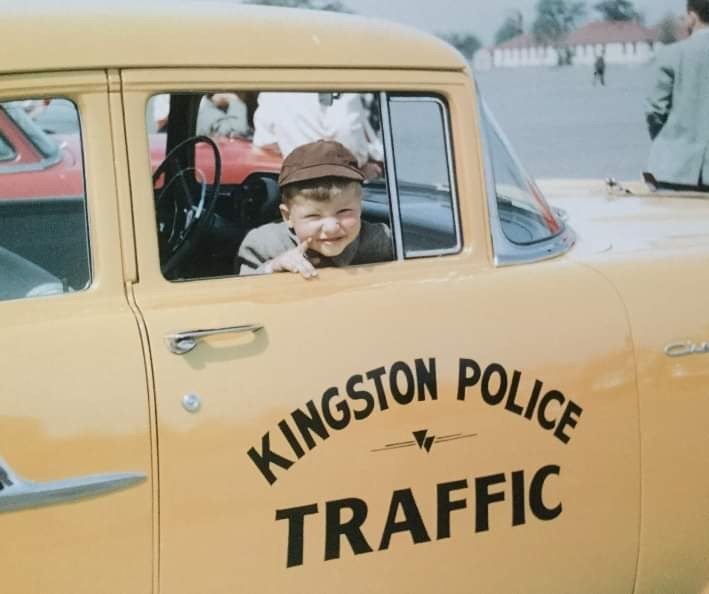
Do you have what it takes?
Officers applying to the TSU must be individually motivated to be proactive in traffic safety and enforcement. Candidates must also be team oriented for group operations like traffic enforcement blitzes or joint training.
Candidates for the TSU must enjoy learning, have an interest in technology, and be comfortable with physics and mathematics. They must be methodical and meticulous for investigations involving serious and fatal collisions.
Additional skills may include training and certification in Drone, ATV, Motorcycle operations, Commercial Motor Vehicle inspections, and much more.
Interested in becoming an officer with Kingston Police? Visit our recruitment website JoinKP.ca and learn more about this challenging and rewarding career.
